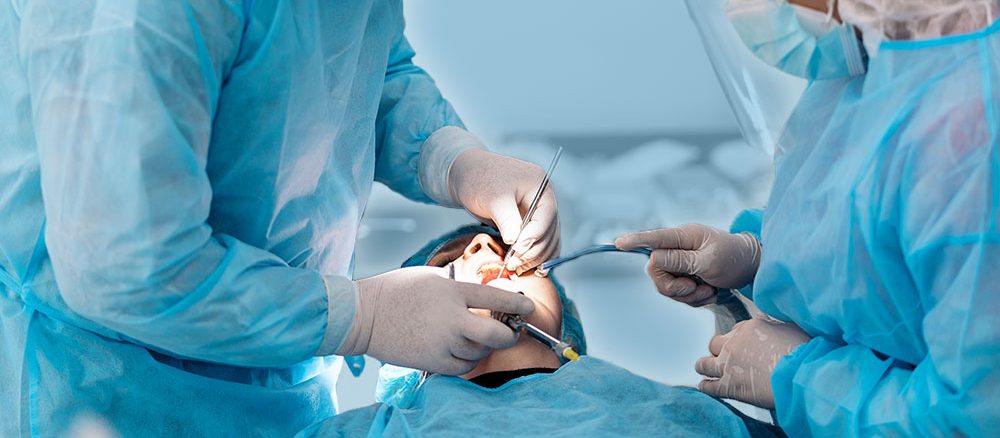Understanding the Scope of Oral & Maxillofacial Procedures: What Can a Surgeon Do for You?
Oral & maxillofacial procedures encompass a wide range of surgical treatments that address conditions affecting the mouth, jaw, face, and neck. Specifically, at Argyle Associates in Ottawa, our skilled surgeons specialize in diagnosing and treating various diseases, injuries, and defects in these areas. The aim of this blog post is to help you understand the comprehensive scope of oral & maxillofacial procedures and how they can benefit you.
What is Oral & Maxillofacial Surgery?
Oral & maxillofacial surgery is a specialized branch of dentistry that centers on the diagnosis and surgical treatment of diseases, injuries, and defects affecting the mouth, jaws, face, and neck. These procedures can encompass a broad spectrum, ranging from simple tooth extractions to complex reconstructive surgeries.
Common Oral & Maxillofacial Procedures
Here are some common procedures performed by oral & maxillofacial surgeons:
- Tooth Extractions
Tooth extractions are one of the most common procedures performed by oral surgeons. They may be necessary due to tooth decay, gum disease, or trauma. Wisdom teeth removal is also a common type of tooth extraction, as they often cause problems such as impaction or infection.
- Dental Implants
Dental implants are artificial tooth roots that are surgically implanted into the jawbone to replace missing teeth. They provide a strong foundation for fixed or removable replacement teeth that are designed to match your natural teeth.
- Corrective Jaw Surgery
Corrective jaw surgery, or orthognathic surgery, is performed to correct irregularities of the jawbones and realign the jaws and teeth to improve facial appearance and function.
- Treatment of Facial Injuries
Oral & maxillofacial surgeons are skilled in the treatment of facial injuries, including fractures of the jaw, cheekbones, and eye sockets, as well as soft tissue injuries of the mouth, face, and neck.
- Cleft Lip and Palate Surgery
Cleft lip and palate are congenital deformities that occur when parts of the lip and palate do not fuse together during fetal development. Surgery is performed to close the cleft and improve appearance and function.
- Treatment of Oral Cancer
Oral & maxillofacial surgeons play a crucial role in the diagnosis and treatment of oral cancer. They may perform biopsies, remove tumors, and perform reconstructive surgery.
Benefits of Oral & Maxillofacial Procedures
Improved Oral Health
Enhanced Appearance
Many oral & maxillofacial procedures aim to improve the appearance of the face, mouth, and jaw. In particular, corrective jaw surgery can help improve facial symmetry, while cleft lip and palate surgery can help enhance the appearance of the lip and nose.
Better Function
Oral & maxillofacial procedures can also improve the function of the mouth and jaw. Notably, corrective jaw surgery, or orthognathic surgery, corrects irregularities of the jawbones and realigns the jaws and teeth to improve both facial appearance and function.
Choosing the Right Surgeon
When it comes to oral & maxillofacial procedures, choosing the right surgeon is crucial. Here are some tips for choosing the right surgeon for your needs:
Experience and Qualifications
Make sure the surgeon is board-certified and has extensive experience in the specific procedure you need. At Argyle Associates, our surgeons are board-certified by the Royal College of Dental Surgeons of Ontario and are members of various other professional associations. Our surgeons have extensive training and experience in oral & maxillofacial surgery.
Consultation
Schedule a consultation with the surgeon to discuss your needs and concerns. During the consultation, the surgeon will examine you, review your medical history, and discuss the best treatment options for your situation.
Comfort Level
It is important to feel comfortable with your surgeon. Make sure you feel comfortable asking questions and discussing your concerns with the surgeon.
Oral & maxillofacial procedures encompass a wide range of surgical treatments that not only enhance your oral health, appearance, and function but also improve your overall well-being. Therefore, if you are contemplating an oral & maxillofacial procedure, it is crucial to select a qualified and experienced surgeon. At Argyle Associates in Ottawa, our skilled surgeons are dedicated to assisting you in achieving the best possible results. Don’t hesitate to contact us today to schedule a consultation.
Frequently Asked Questions
- How long is the recovery period after oral & maxillofacial surgery?
The recovery period after oral & maxillofacial surgery varies significantly depending on the type of procedure performed and the individual patient’s health. For instance, the recovery period after a simple tooth extraction may last a few days to a week, whereas the recovery period following more complex procedures, such as corrective jaw surgery, may extend for several weeks to a few months. It’s essential to note that your surgeon will provide you with detailed post-operative instructions and an estimated recovery timeline.
- Are there any risks associated with oral & maxillofacial surgery?
As with any surgical procedure, there are risks associated with oral & maxillofacial surgery. These may include bleeding, infection, nerve damage, and reactions to anesthesia. However, our skilled surgeons at Argyle Associates take all necessary precautions to minimize these risks and provide you with the safest possible treatment.
- Will I be under anesthesia during the procedure?
Most oral & maxillofacial procedures are performed under anesthesia to ensure your comfort and safety during the surgery. The type of anesthesia used will depend on the complexity of the procedure and your individual needs. Your surgeon will discuss the anesthesia options with you during your consultation.
- Will my insurance cover the cost of the procedure?
Insurance coverage for oral & maxillofacial procedures varies depending on your insurance plan and the type of procedure being performed. Some procedures may be covered by medical insurance, while others may be covered by dental insurance. Our staff at Argyle Associates will help you understand your insurance coverage and provide you with an estimated cost of the procedure.

